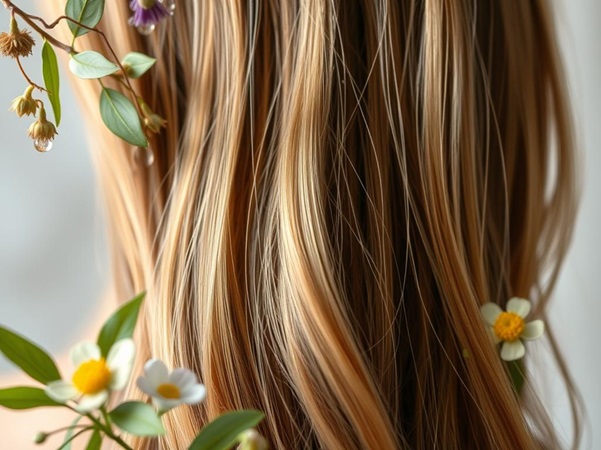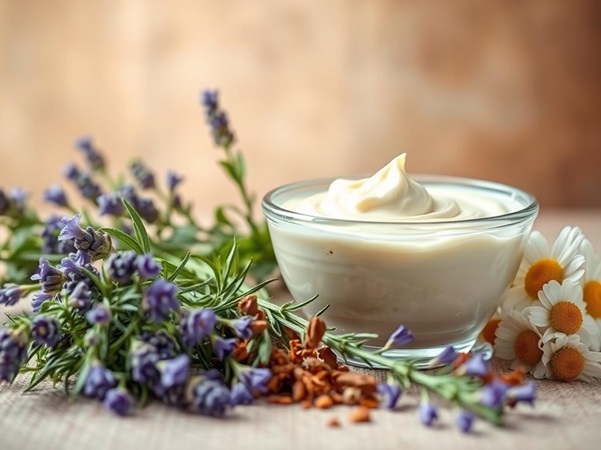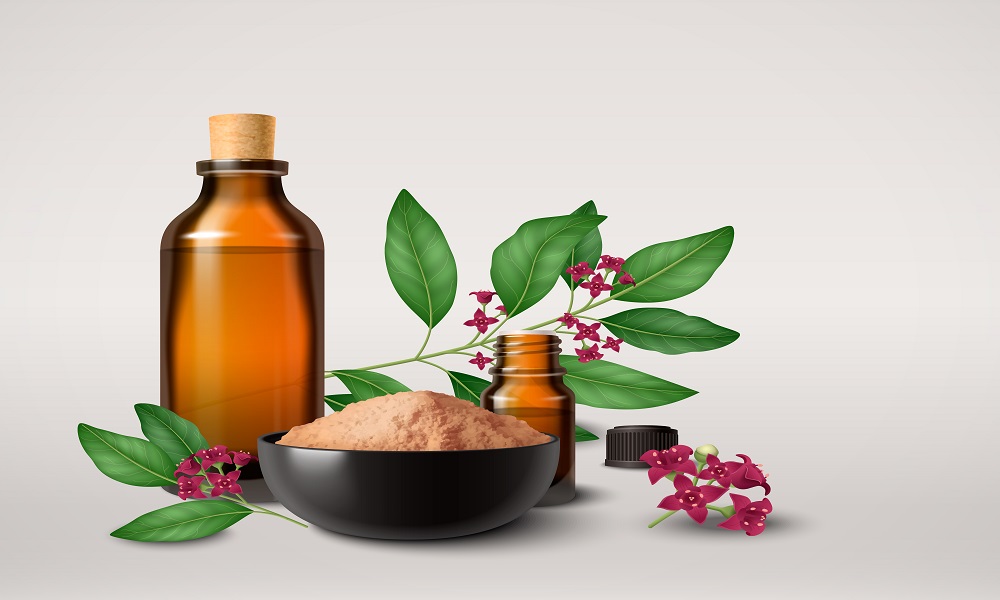About 50% of people with dry or damaged hair find it hard to style. This shows the need for good hair rehydration methods. Learning how to rehydrate dry hair is key for keeping your hair healthy and looking good. Natural remedies like coconut oil and essential oils can add moisture and help hair grow.
Knowing how to rehydrate hair and using natural ingredients can greatly improve your hair’s health and look. In this article, we’ll look at the benefits of natural herbal treatments for hair rehydration. We’ll also share tips on how to rehydrate your hair well.
Key Takeaways
- Learning how to rehydrate hair is essential for maintaining healthy and stylish hair
- Natural remedies for dry hair, such as coconut oil and essential oils, can help restore moisture and promote hair growth
- Hair rehydration is a simple yet effective way to achieve healthy and beautiful hair
- Using natural ingredients can make a significant difference in the health and appearance of your hair
- Understanding the importance of hair rehydration is crucial for maintaining healthy locks
- Natural herbal treatments can help restore moisture and promote hair growth
- Effective hair rehydration methods can help reduce hair damage and breakage
Understanding Hair Dehydration and Its Causes
Hair dehydration makes hair dry, brittle, and damaged. It’s important to know why hair gets dehydrated. Styling, dyeing, and heat can dry out hair. Dry air and too much sun also take away hair’s moisture.
To rehydrate dry hair, you need to know what causes dehydration. This includes washing hair too much, using harsh products, and not protecting it from the environment. Knowing these causes helps you fix them and keep your hair moisturized.
Common Signs of Dehydrated Hair
- Dull and rough texture
- Split ends
- Dry or flaky scalp
- Increased difficulty in styling
To fight hair dehydration, use tips for hydrating hair like serums and shampoos. The L’Oréal Paris Elvive Hyaluron + Plump line is great for hydrating hair. It makes hair look healthy, bouncy, and shiny. Adding these hair hydration methods to your routine keeps your hair moisturized and vibrant.
The Science Behind How to Rehydrate Hair
Restoring moisture to hair is a complex process. It involves understanding the science behind hair rehydration. Natural ingredients play a key role in moisturizing and nourishing hair.
How often you wash your hair affects its dryness. Washing it too much can make it dry. Malnutrition and thyroid issues also contribute to dry hair.
When it comes to restoring moisture to hair, conditioners are crucial. They have a positive charge that helps them stick to hair. This aids in hydration. It’s important to use conditioners regularly, such as after shampooing, for deep conditioning, and as a leave-in.
Some key tips for effective hair rehydration techniques include:
- Using sulfate-free products to minimize dryness
- Managing heat styling tool usage to prevent damage
- Getting regular haircuts to prevent dry split ends
Using products with coconut oil or almond oil can deeply hydrate hair. Inositol in rice water also helps repair damaged hair. By understanding the science and using these effective hair rehydration techniques, you can restore moisture and promote healthy hair growth.

Essential Herbs for Hair Hydration
Many people look for natural ways to moisturize their hair. Essential herbs are a great option. They help keep hair hydrated and healthy.
Herbs like aloe vera, marshmallow root, and hibiscus are very beneficial. You can use them in hair masks, rinses, or in hair care products.
Aloe Vera and Its Moisturizing Properties
Aloe vera is great for dry hair because it’s moisturizing. It can be used as a hair mask or in hair care products. It helps keep moisture in and reduces frizz.
Marshmallow Root Benefits
Marshmallow root is also good for hair hydration. It has mucilage, which protects and locks in moisture. It soothes dry, damaged hair.
Hibiscus for Hair Health
Hibiscus is full of vitamins and minerals, making it great for hair. It can be used in hair masks or in hair care products. It nourishes and moisturizes dry hair.
Adding these herbs to your hair care routine can improve hair hydration and health. They can be used in hair masks, rinses, or in products. This leaves your hair soft, smooth, and moisturized.
Creating Natural Herbal Hair Masks
To keep your hair hydrated, try using natural herbal hair masks. These masks can be made to fit your hair type and needs. For example, a mix of avocado and olive oil can seal in moisture. On the other hand, a blend of egg and lemon can add protein and clean your hair.
Using natural ingredients is crucial for hydrating hair. Ingredients like bananas and coconut oil are great for hair masks. Bananas fight off bacteria, and coconut oil helps keep protein in your hair. Here are some benefits of using natural ingredients in hair masks:
- Customizable to individual hair types and needs
- Can be made with ingredients found at home
- Free from harsh chemicals found in commercial products
Here’s a simple recipe for a hair mask using some of these ingredients:
| Ingredient | Quantity |
| Avocado | 1 |
| Olive oil | 2 tablespoons |
| Honey | 1 tablespoon |
Apply this mask to your hair and leave it on for 20-30 minutes. Rinse with warm water, then follow your usual hair care steps. Remember, using hair hydration methods and tips regularly will give you the best results.

Deep Conditioning Treatments Using Botanical Ingredients
Deep conditioning treatments are key for keeping hair healthy and moisturized. You can use natural ingredients like coconut oil, honey, and avocado at home. These ingredients deeply nourish and hydrate your hair.
Popular methods include hot oil treatments, overnight hydration, and steam treatments. Hot oil treatments use oils like coconut and olive oil. You leave it on for a while before rinsing. Overnight hydration uses a mask that you wear to bed. Steam treatments open up the hair cuticle for better ingredient absorption.
Hot Oil Treatment Recipes
- Mix equal parts coconut oil and olive oil for a nourishing and hydrating treatment
- Add a few drops of essential oil, such as lavender or rosemary, for a relaxing and stimulating effect
- Leave the treatment on for at least 30 minutes before rinsing
Overnight Hydration Methods
Apply a hydrating mask to your hair before bed. Cover it with a shower cap to help it penetrate better. Rinse it out in the morning and style as usual.
| Treatment | Ingredients | Leave-on Time |
| Hydrating Mask | Coconut oil, honey, avocado | Overnight |
| Hot Oil Treatment | Coconut oil, olive oil | 30 minutes |
Adding these deep conditioning treatments to your routine can make your hair healthy and vibrant.
Daily Herbal Hair Care Routine
To keep your hair healthy and hydrated, you need a daily routine. This routine should include tips for hydrating hair like using natural ingredients. It’s also important to know how to keep your hair moist all day. A regular routine boosts hair health and helps it stay hydrated.
Start your day by applying a hair serum or oil to keep moisture in. For example, Moroccan Argan Hair Serum nourishes and adds shine without making your hair heavy. Also, using a hair mask once or twice a week can bring back moisture and softness.
Here are some daily tips for hydrating hair:
- Use a gentle, sulfate-free shampoo.
- Apply a moisturizing conditioner, focusing on the ends of the hair.
- Rinse with cold water to seal the hair cuticles and lock in moisture.
- Use a wide-tooth comb or a detangling brush to minimize breakage.
By following these simple tips for hydrating hair and sticking to a daily routine, you can make your hair healthier and look better. Remember, being consistent and patient is key. You’ll see improvements over time.

Preventive Measures for Maintaining Hair Hydration
To keep your hair hydrated, it’s key to take steps ahead of time. Use protective styles like hats or scarves in harsh weather. Eating foods full of omega-3s, like fatty fish and nuts, is also good for your hair.
Using natural hair treatments, like hair masks and leave-in conditioners, helps too. Heat styling tools can dry out your hair, so use a heat protectant. Also, pick a moisturizing shampoo and conditioner to keep your hair moist.
- Use heat styling tools less often
- Detangle with a wide-tooth comb
- Choose gentle shampoos and conditioners
- Get regular trims to avoid split ends
By taking these steps and using natural hair treatments, you can keep your hair hydrated. This will help your hair stay healthy and strong.
Common Mistakes to Avoid When Rehydrating Hair
When trying to rehydrate hair, it’s easy to make mistakes. Over-washing, harsh products, and ignoring environmental damage are common errors. Knowing these mistakes helps you avoid them and keep your hair hydrated.
Washing hair with very hot water can dry it out and damage color-treated hair. Brushing before washing helps reduce tangles. Use a detangling brush on wet hair to prevent breakage. Also, squeeze out excess water before applying conditioner for better absorption.
Here are more mistakes to steer clear of:
- Applying conditioner to the roots, leading to greasy hair and scalp buildup
- Sleeping with wet hair, increasing dandruff, bacteria, and breakage risk
- Using heat styling tools without protection, causing damage and dryness
- Not using a leave-in conditioner, which keeps moisture in and reduces frizz
Avoiding these mistakes and using good hair hydration methods can keep your hair healthy. Use gentle, sulfate-free products and protect your hair from humidity and extreme temperatures.
Seasonal Adjustments for Hair Hydration
As the seasons change, we must adjust our hair care routines. This ensures our hair stays hydrated and healthy. In the winter, when the air is drier, it’s key to learn how to rehydrate hair.
Using deep conditioning treatments and hydrating shampoos helps. These products lock in moisture and protect our hair from the elements.
In the summer, protecting our hair from the sun’s UV rays is crucial. The sun can make our hair dry and brittle. A hair mask with hydrating ingredients like hyaluronic acid can keep our hair moist for up to five days.
In the winter, the dry air can cause hair breakage and static. Using a deep conditioning treatment once a month can fix damage from harsh weather.
Some key tips for seasonal hair care include:
- Using lightweight hydration products in the spring to counteract potential weightiness from heavier shampoos and conditioners used during winter.
- Incorporating detoxifying scalp treatments to maintain a healthy scalp, which significantly impacts hair health.
- Applying anti-frizz products during the spring to manage increased humidity effects.
By following these tips and adjusting our hair care routines according to the seasons, we can keep our hair hydrated, healthy, and looking its best all year round.
| Season | Hair Care Tips |
| Summer | Use a hair mask with hydrating ingredients, protect hair from UV rays |
| Winter | Use a deep conditioning treatment once a month, use a hydrating shampoo |
| Spring | Use lightweight hydration products, incorporate detoxifying scalp treatments |
Combining Herbal Treatments with Modern Hair Care
Many people are now using natural remedies to moisturize their hair. By mixing herbal treatments with modern hair care, they can make a routine that meets their hair’s needs. Natural ingredients like aloe vera, coconut oil, and shea butter are great for hair masks, deep conditioning, and leave-in products.
Herbal treatments can make hair more hydrated, reduce frizz, and add shine. They also help balance the scalp’s pH, which can reduce irritation and promote hair growth. It’s important to choose high-quality products and stick to a routine for the best results.
Here are some tips for mixing herbal treatments with modern hair care:
- Start by adding one or two herbal ingredients to your routine
- Look for products that are labeled as “natural” or “organic”
- Be patient and give your hair time to adjust to the new ingredients
By following these tips and finding the right mix of herbal treatments and modern hair care, you can get healthy, beautiful hair. Your hair will look and feel its best.
| Herbal Ingredient | Benefits |
| Aloe Vera | Hydrates and soothes the scalp |
| Coconut Oil | Nourishes and moisturizes hair |
| Shea Butter | Protects and conditions hair |
Conclusion: Maintaining Long-Term Hair Health Through Natural Hydration
Restoring and keeping hair hydrated is crucial for long-term health. Using aloe vera, marshmallow root, and hibiscus in your hair care can rehydrate dry, dehydrated hair. This helps prevent moisture loss.
Consistent use of these natural hair hydration methods is important. Along with protective styling, a balanced diet, and lifestyle changes, you can keep your hair vibrant and healthy. Nature can help revitalize your hair, keeping it in top condition for years.
FAQ
What are the common signs of dehydrated hair?
Signs of dehydrated hair include dullness and brittleness. Split ends, frizz, and a rough texture are also common.
What are some environmental factors that can affect hair moisture?
Sun, wind, heat, and dry air can dry out your hair.
How can hair care routines impact hair hydration?
Over-washing and harsh products can dry out your hair. Not protecting it from the environment also contributes.
What are the benefits of using aloe vera for hair hydration?
Aloe vera moisturizes the hair and scalp, making it nourishing.
How can marshmallow root help with hair rehydration?
Marshmallow root adds moisture and softness to the hair with its mucilage.
What are the hair benefits of using hibiscus?
Hibiscus is full of vitamins and antioxidants. It promotes healthy, hydrated hair.
What are some tips for creating natural herbal hair masks?
Mix aloe vera, honey, and coconut oil for a nourishing mask.
What are the benefits of hot oil treatments for hair hydration?
Hot oil treatments deeply condition and lock in moisture for dry hair.
How can overnight hydration methods help rehydrate hair?
Leaving a moisturizing mask or oil treatment on overnight intensely hydrates the hair.
What are some tips for incorporating herbal ingredients into a daily hair care routine?
Use herbal-infused shampoos, conditioners, and treatments to keep hair hydrated.
What are some protective styling methods that can help maintain hair hydration?
Styles like braids and buns lock in moisture and prevent dehydration.
How can diet and lifestyle choices impact hair hydration?
Drinking water, eating well, and avoiding harsh treatments keep hair hydrated.
What are some common mistakes to avoid when rehydrating hair?
Avoid over-washing, harsh products, and neglecting environmental protection to prevent dry hair.
How can hair care routines be adjusted for different seasons?
Adjust your hair care for summer sun and winter dryness to keep hair hydrated all year.
How can natural and modern hair care methods be combined for better hydration?
Mix natural, herbal products with your current routine for better hydration.
Looking for safe, effective, and time-tested natural remedies? Unlock the secrets of holistic healing at Pure Remedy Solutions




